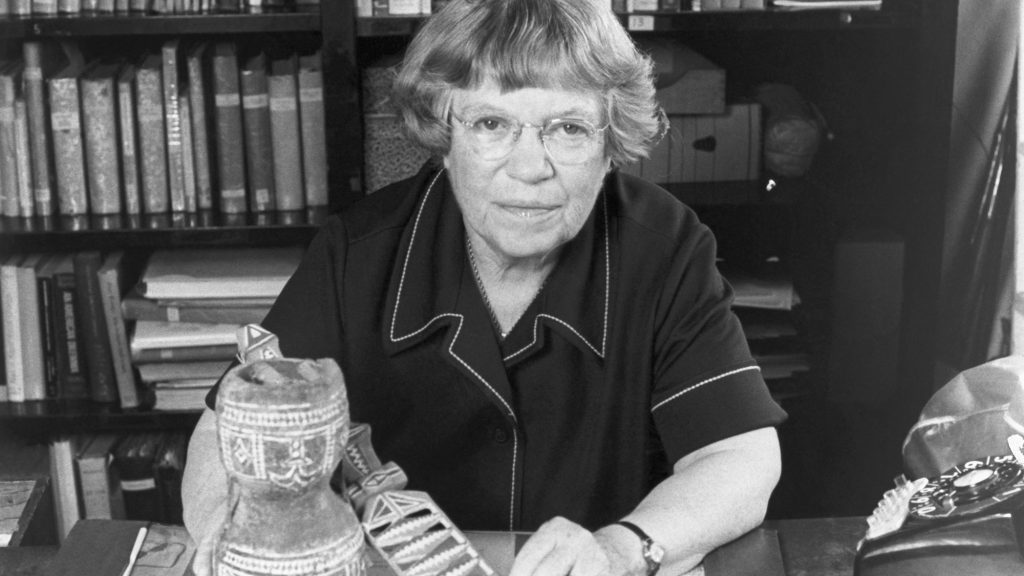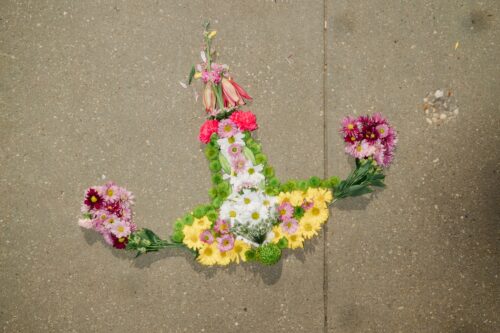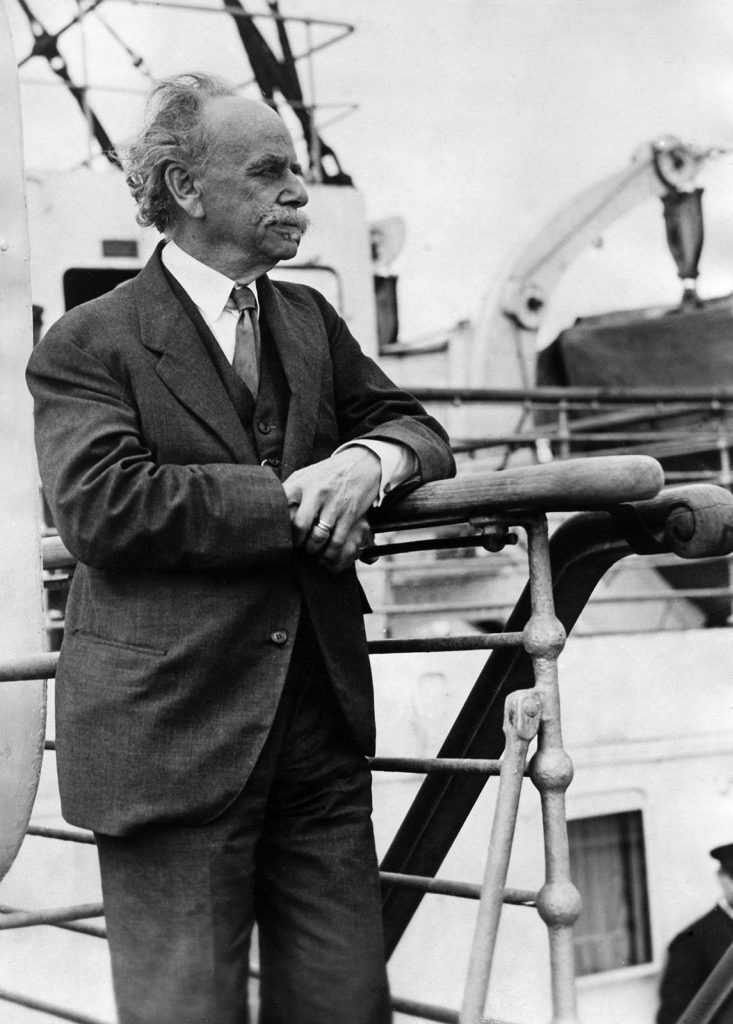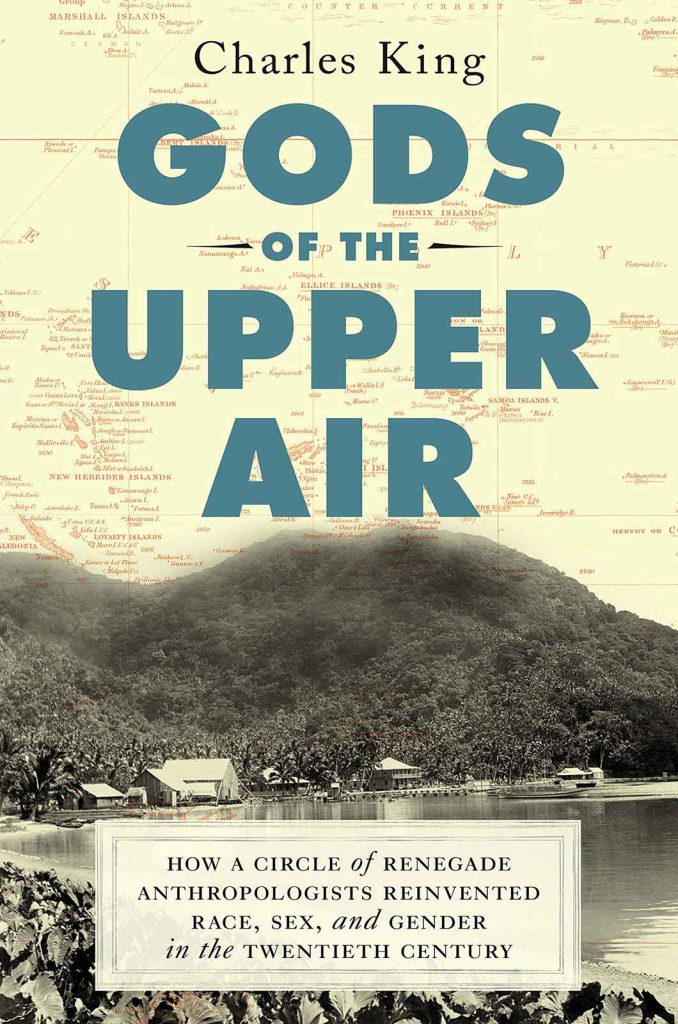The Anthropologists Who Undid Sex, Race, and Gender

Gods of the Upper Air: How a Circle of Renegade Anthropologists Reinvented Race, Sex, and Gender in the 20th Century by Charles King. Doubleday, August 2019.
The anthropologist Franz Boas was, according to Charles King’s new group biography, a cantankerous guy. King describes him as “irascible, stubborn, impatient, and not given to compromise,” as well as “confident to a fault, officious, and given to pique.”
Cranky, for sure, Boas, who lived from 1858 to 1942, was also a crank in the best possible way: His views on race, culture, and the intellectual potential of women diverged radically and presciently from the conventional wisdom of his day.
When Boas began practicing anthropology in the 1880s, after abandoning physics, Western societies generally embraced a hierarchical classification of races and the notion of race and gender as biologically fixed. Thanks to Boas and his circle, anthropologists today reject the belief that social development is linear, moving from “primitive societies” to “civilized ones.”
In Gods of the Upper Air, a beautifully written portrait of Boas and some of the diverse women he helped train at Columbia University, King suggests that they transformed anthropology—and Western thought more broadly—by unmooring cultural differences from biology, viewing cultures holistically, and according equal value to non-Western societies.
“This book is about women and men who found themselves on the front lines of the greatest moral battle of our time,” writes King, professor of international affairs and government at Georgetown University, “the struggle to prove that—despite differences of skin color, gender, ability, or custom—humanity is one undivided thing.”
King profiles Boas’ students Ruth Benedict, Margaret Mead, Zora Neale Hurston, and Ella Cara Deloria. Each one contributed groundbreaking anthropological research. While Mead may be Boas’ most celebrated student, Benedict was Boas’ chief acolyte, as well as Mead’s most enduring love. Hurston became the Harlem Renaissance’s star contrarian, whose 1937 novel, Their Eyes Were Watching God, was rooted in her anthropological fieldwork. Deloria, of Yankton Dakota Sioux and European descent, was “one of the few people [at Columbia] who could claim to be both objective observer and object of study,” writes King.
It’s not readily apparent why Boas—a German-born Jew who became an American citizen—was such a staunch advocate for women. Perhaps it was merely his vaunted empiricism at work. “All my best students are women,” he wrote to a colleague. King suggests that Boas believed: “A science that had access to only half the available data—the practices, stories, and rituals of men—wasn’t worthy of the name.” Presumably, Boas was convinced that women would be better, more intimate observers and chroniclers of their own gender. In any case, his mentorship proved invaluable.
With his encouragement, Hurston, now more celebrated for her fiction, investigated African American communities in the American South and folklore in Jamaica and Haiti. Collaborating with Boas, Deloria did linguistic fieldwork on Native Americans, emphasizing the need to see such communities as living cultures, not just as remnants of a vanished past. “Get nowhere unless prejudices first forgotten. Cultures are many; man is one,” she jotted down, attributing the thoughts to Boas.
Benedict wrote about cultural patterns in different societies and was enlisted by the U.S. government to analyze Japan during World War II. As for Mead, King tells us, she was more interested in the impact of those patterns on individuals. She found support for her own predilections in the societies of the South Seas, whose sexual behavior was less inhibited than in the West. (Her conclusions—about the relatively stress-free adolescence of Samoan girls—would later be both challenged and reaffirmed, a controversy that King stops short of exploring.)
Boas and his students were, King notes, “globalists in an era of nationalism and social division.”
King begins not with Boas but with Mead, whose extraordinary archive is a principal source for Gods of the Upper Air. While her mentor devoted much of his career to attacking contemporary conceptions of race, Mead focused on gender and sexuality, using her exploration of South Seas cultures to question Western moral certitudes about monogamy and traditional male and female roles.
Mead’s own life was a case study in deviation from Western norms. King’s first chapter immerses us in the 23-year-old’s 1925 journey to the Samoan Islands, which would result in her 1928 bestseller, Coming of Age in Samoa. “She had left behind a husband in New York and a boyfriend in Chicago,” King writes, “and had spent the transcontinental train ride in the arms of a woman.” Who wouldn’t want to turn the page after that teaser of an introduction?
One of the usual pitfalls of group biography is the sacrifice of depth to breadth. King can’t hope to match the detail of a solo biography, but he does offer a remarkably intimate portrayal of Mead. While we never learn what factors in her upbringing might have contributed to her propensity for polyamory, we get a powerful glimpse of its emotional fallout, as the thrice-married, thrice-divorced Mead lurches from (overlapping) relationship to relationship.
King also records how, despite their brilliance, these four female protégées of Boas all struggled professionally. They encountered career obstacles based on their ethnicity and/or gender, as well as their avant-garde views. Zigzagging across the country and the world, they also wrestled with self-doubt. “I’m going to get a job giving change in the subway when I get home,” Mead wrote to Benedict in the 1920s.
Gods of the Upper Air serves as both a bracing history of the development of anthropology in the U.S. and a thinly concealed volley in the contemporary debate about the meaning of race, class, gender, and other classifications. The current era of political polarization has seen a resurgence of many of the old prejudices that Boas and his students combatted.
These anthropologists were, King notes, “globalists in an era of nationalism and social division,” and their work was foundational to “an outlook that we now label modern and open-minded.” Nonetheless, King insists he is not trying to offer “a lesson in tolerance”—just “a story about science and scientists.”
The book’s metaphorical title, Gods of the Upper Air, is drawn from a Hurston quotation that serves as one of the book’s epigraphs. “I have walked in storms with a crown of clouds about my head and the zigzag lightning playing through my fingers. The gods of the upper air have uncovered their faces to my eyes,” Hurston wrote in 1942.
King’s appropriation of Hurston’s poetic language resonates with ambiguity. Throughout most of the book, we’re unclear whether the referenced gods are Boas’ gifted circle, the subjects of their study, or the truths they unveiled. In his concluding paragraph, King suggests that “seeing the world as it is requires some distance, a view from the upper air.”
But that’s a paradoxical dictum: Like the ethnographers he profiles, King relies on proximity, not distance. He gets up close and personal with his subjects, illuminating figures whose ideas still shape anthropological, social, and political debate.

































